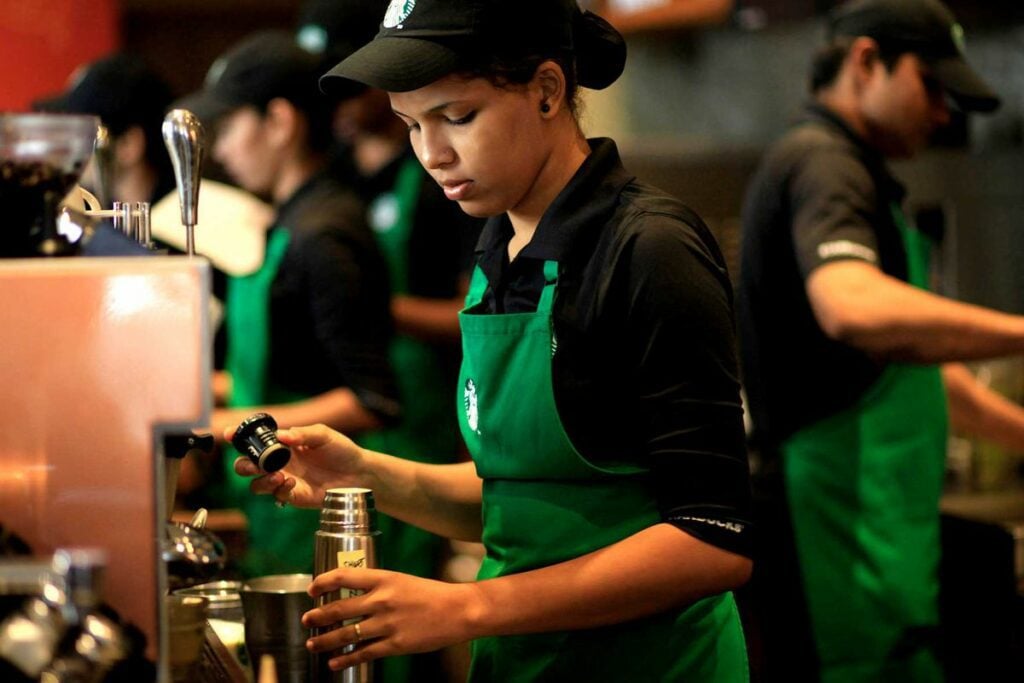Starbucks is one of the world’s most successful international companies. Its success stems from the fact that it provided an experience that changed how much of the world thought about coffee shops and how many of us drink coffee outside of our homes. While the front end of the spectrum shows us how great the Starbucks brand is, did you know they have a slave labor problem?
In 2018, Starbucks’ coffee was discovered to have links to forced labor plantations where workers were subjected to debt bondage and unsafe working conditions. Ironically, the news broke 8 months after they were named one of the World’s Most Ethical Companies for the 12th consecutive year.
The Starbucks Slave Labor Issue
Local labor inspectors published reports in 2018 that linked Starbucks directly to a plantation where workers were forced to live and work in filthy conditions.
The workers in this plantation reported dead bats and mice in their food, a lack of sanitation, and workdays that lasted from 6 am to 11 pm. Workers claimed that the payment system was rigged and that the coffee they selected vanished before it could even be counted.
Workers had almost no take-home pay due to deductions for cashing their checks. While the plantation had Starbucks’ Coffee and Farmer Equality (CAFE) Practices certification, Starbucks has recently denied purchasing from the farm. CAFE Practices allow for inspections to happen as infrequently as 2-3 years, depending on several factors including previous inspection scores.
In a more recent case, labor inspectors discovered workers in similarly appalling conditions on another plantation that had been certified to Starbucks’ standards. Workers toiling in slave-like working conditions reached a 15-year high in 2018. This information was acquired from the Brazilian labor ministry. (Source: Fair World Project)
Is Supporting Small-Scale Farmers the Way to End the Cycle of Exploitations?
Small-scale farmers grow 80% of coffee, with an estimated 25 million of them worldwide. However, Brazil has a long history of large-scale coffee production. Landowners built vast plantations in the early 1800s, expanding their production on the backs of thousands of enslaved Africans brought from Africa.
Even after slavery was abolished in the late 1880s, the same power imbalance still exists. A few landowners controlled vast tracts of land, and many, many more people were left landless and exploited for their labor. Brazil is not alone in this regard. Indeed, large-scale plantation agriculture is based on this model throughout the Americas.
To demand that Starbucks support small-scale farmers is to demand that they contribute to the transformation of this exploitation-based system. Fairtrade establishes minimum prices and premium funds that farmers and cooperatives democratically control. (Source: Fair World Project)
Will Fair Trade Help Farmer’s Livelihoods?
Fairtrade farmers have a better chance of success. According to Fairtrade International, a minimum price of $1.60 per pound for conventional coffee and $1.90 for organic coffee. Farmers lead the Simbolo Pequeno Productores, or Small Producers Symbol (SPP), with a minimum of $2.20.
The price per pound is a critical issue. On the other hand, volume is a significant contributor to farm income. The overall impact is reduced if a farmer can only sell a portion of their crop at a higher price.
There is plenty of coffee available from farmers who have already gone through the certification process. They need buyers who are willing to commit to fair trade terms. (Source: Fair World Project)
